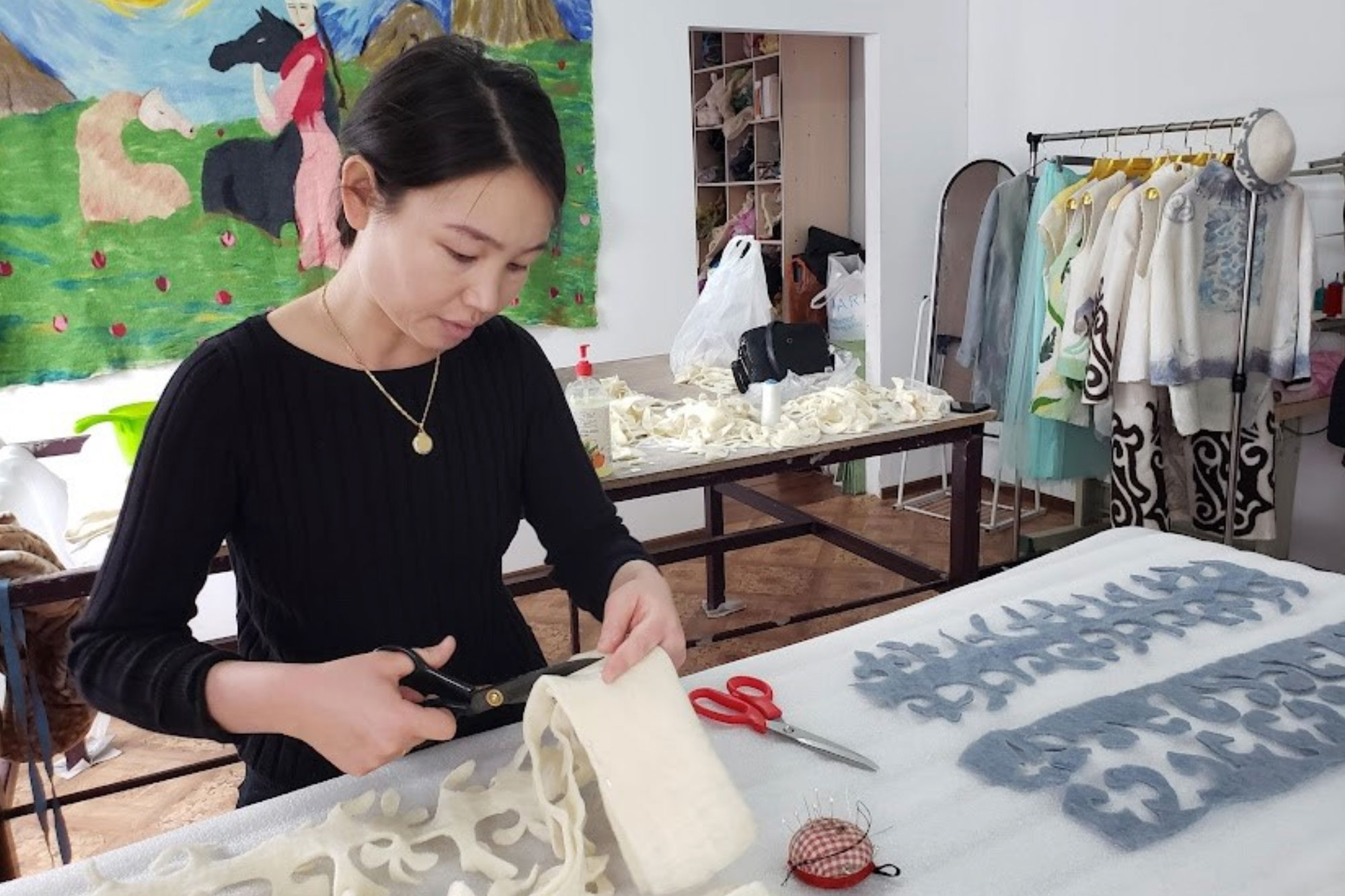The Smithsonian Center for Folklife and Cultural Heritage has partnered with USAID’s Trade Central Asia activity and the Commercial Law Development Program of the U.S. Department of Commerce to document the craft practices of fifty small and medium women-run artisan businesses in five Central Asian countries: Kazakhstan, Kyrgyzstan, Tajikistan, Uzbekistan, and Turkmenistan. The documentation will be collected into a look book, with the aim of promoting the region’s women artisans and increasing awareness and appreciation of their craft both locally and internationally.
Drawing on the work of the Smithsonian Artisan Initiative, the My Armenia Cultural Tourism Program, and ongoing exchange programs in the region, the Center will partner with Lesli Robertson Studio and the Union of Artisans in Kazakhstan to implement this project. Over five months, in addition to creating the look book, the Center’s team will provide virtual and in-person trainings on artisan marketing strategy and using the look book to promote craft practices and businesses.
“Documentation and recognition of craft practices support their vitality,” said Halle Butvin, the Center’s director of special projects, including the Cultural Vitality Program. “Through this new project, we are excited to build relationships with artisans and artisan associations across Central Asia and to share their work with our Smithsonian audience.”
About the Smithsonian Artisan Initiative
The Smithsonian Artisan Initiative is dedicated to building the sustainability of craft practices. The program brings together community-driven research and documentation, product design and development, enterprise training, and a suite of tools artisans can use to unlock access to markets.
About USAID’s Trade Central Asia activity
The goal of USAID’s Trade Central Asia activity is to improve region-wide trade connectivity to accelerate economic growth and increase economic opportunity in Central Asia through harmonization of customs and border procedures, increasing public-private dialogue on trade and investment, improving cross-border firm-to-firm connectivity, strengthening resilience of Central Asian economies through trade, and addressing gender-relevant trade issues. USAID’s Trade Central Asia activity supports women traders and businesses in the region by reviewing current trade policies and practices for bias against women and designing activities to help women overcome these challenges.
About the Commercial Law Development Program, U.S. Department of Commerce
Established in 1992, the Commercial Law Development Program (CLDP) is a division of the U.S. Department of Commerce that helps achieve U.S. foreign policy goals in developing and post-conflict countries through commercial legal reforms. CLDP’s unique, government-to-government technical assistance draws upon highly experienced regulators, judges, policymakers, business leaders, and attorneys from both the public and private sectors to deliver results that make meaningful and lasting changes to the legal and business environments of our host countries.


